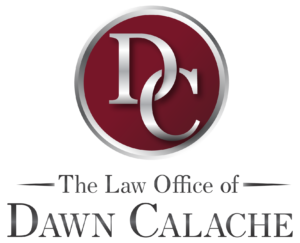How long does bankruptcy remain on my credit bureau report?
A Chapter 7 bankruptcy can be kept in the public records section of your credit report for 10 years.
How long does it take to reestablish credit?
You will probably find you can get credit right away, but at high interest rates. However, most people find it only takes about two years to build their credit up so they can obtain credit with good quality interest rates.
Can my employer fire me for filing bankruptcy?
No. Federal law 11 U.S.C. 525 precludes a public or private employer from discriminating against any employee for filing bankruptcy. Chapter 13 is also called Debt Consolidation, or the Wage Earners Plan. Chapter 13 is primarily designed to allow you to stop foreclosures and repossessions, and allows you to make up the back payments in a 36 to 60 month plan. In a Chapter 13, we can also consolidate other bills, such as your car payment, whereby you may be able to only pay the value of the car, and not the loan balance. Other debt that can be consolidated includes tax debts, student loans, and child support or alimony arrears.
Do I qualify for a Chapter 13 Bankruptcy?
As long as you have a regular source of income, you should qualify to file a Chapter 13 Bankruptcy.
Are certain debts dischargeable in Chapter 13 that are not dischargeable in Chapter 7?
Yes. Credit card fraud, embezzlement, larceny, conversion, and certain IRS debt can be discharged in a Chapter 13 bankruptcy.
Will I lose any property?
You shouldn’t lose any property in a Chapter 13 bankruptcy.
Do I have to list all my creditors?
Yes. The bankruptcy laws require you to list all of your creditors. Bankruptcy schedules are signed under the penalty of perjury and you will be asked under oath at the Meeting of Creditors if all debts were listed.
Can I transfer ownership of my assets to someone else prior to filing bankruptcy so I don’t lose them in bankruptcy?
You don’t lose assets in a Chapter 13, so you would not want to transfer any assets prior to filing bankruptcy.
If I am married, can I file separately, even if a foreclosure has begun, and both names are on the mortgage?
Yes. If one of the spouses does not need to be in bankruptcy, other than for the foreclosure, that spouse can remain out of the bankruptcy.
Will my bankruptcy affect a co-signer on the debt?
If the debt is not paid in full under the Chapter 13 Plan, the creditor may continue to try to collect the debt from the co-signor.
What is the Meeting of Creditors?
This is a scheduled meeting, which takes place approximately 30 days after your bankruptcy has been filed with the court. It is not before a judge, but before a Trustee, which is usually a lawyer appointed by the court to over-see your case. The Trustee has the opportunity to ask you questions under oath about your assets and debts, which usually lasts five minutes or less. Creditors are also allowed to attend and ask you questions as well, although it is rare for a creditor to attend.
How long does it take?
The minimum period of reorganization is 36 months, and the maximum period of reorganization is 60 months.
How many times will I have to go to court?
In a Chapter 13 bankruptcy, you should only have to go to court before a judge once, for a Confirmation Hearing, which is usually about six months after your case is filed with the court. The only other appearance you have to make is before a trustee at the Meeting of Creditors.
How long does a Chapter 13 bankruptcy remain on my credit bureau report?
A Chapter 13 bankruptcy can be kept in the public records section of your credit report for 7 years.
Can my employer fire me for filing bankruptcy?
No. Federal law 11 U.S.C. 525 precludes a public or private employer from discriminating against any employee for filing bankruptcy.
What is a Chapter 13 Plan?
This is a plan prepared by your attorney in which the method and amount of repayment of your debts is outlined and proposed. The amount to be repaid is dependent upon your assets, gross income, secured debt, and arrearage owed.
When is the first Chapter 13 Plan payment due?
The first payment is due thirty (30) days after the Chapter 13 Plan is filed. The Chapter 13 Plan is usually filed within 15 days of your initial Petition and Schedules.


